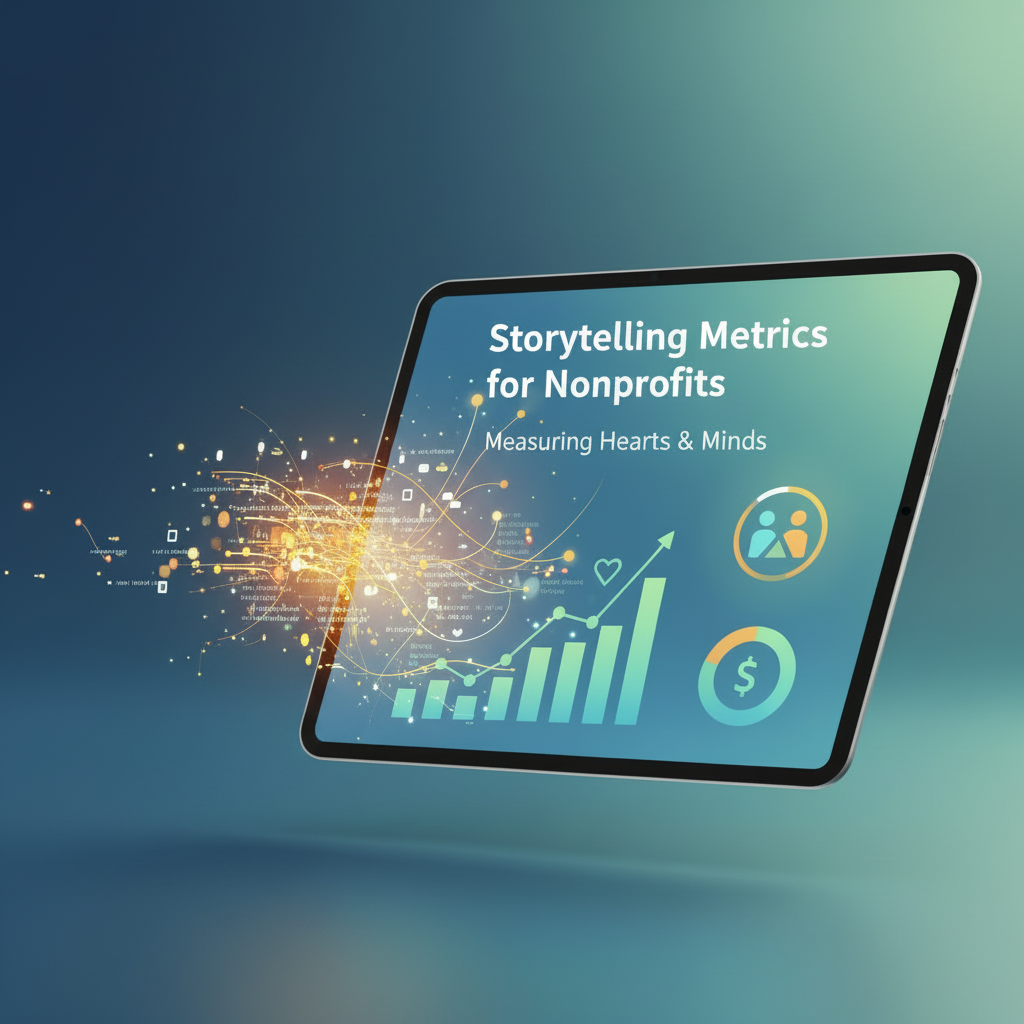Nonprofit SEO Made Simple: Elevate Your Mission's Impact

SEO for nonprofit organizations is crucial in today's digital age. As nonprofits strive to lift their mission's impact, improving online visibility through search engine optimization is key. For those seeking a quick guide, here's what you need to know:
- SEO stands for Search Engine Optimization: It's about making your website more visible to people searching for relevant topics online.
- Why it's important: High SEO ranking can place your organization in the top search results, leading to more awareness, donations, and volunteer sign-ups.
- Factors to prioritize: Focus on search intent, page speed, user experience, and mobile usability to rank higher.
- Content matters: Publish valuable, in-depth content regularly to establish authority.
Nonprofits are in a unique position where spreading awareness and increasing engagement can lead to positive social impacts. A well-executed SEO strategy allows these organizations to reach more people, share their stories, and inspire action on a larger scale.

Handy seo for nonprofit organizations terms:
Understanding SEO for Nonprofit Organizations
Keyword Research for Nonprofits
When it comes to SEO for nonprofit organizations, understanding your audience's search intent is crucial. Search intent refers to what people are really looking for when they type a query into a search engine. Are they seeking information, wanting to make a donation, or looking for volunteer opportunities? Knowing this helps you tailor your content to meet their needs.
Keyword research is the backbone of SEO. It involves finding the terms your audience is using to find information related to your nonprofit. Start with broad terms and then drill down to more specific, long-tail keywords. Long-tail keywords are phrases with three or more words and are often less competitive but more targeted. For example, instead of just "donate," consider "donate to environmental nonprofits in New York."
Here’s how to find the right keywords:
- Use tools: Tools like Semrush can help you identify keywords with low difficulty and decent search volume.
- Analyze top-ranking content: Look at what works for others in your field. What keywords are they ranking for?
- Think like your audience: What questions are they asking? How can you answer them?
By focusing on the right keywords, you increase the chances of appearing in search results when potential supporters are looking for services like yours.
On-Page SEO Optimization
Once you have your keywords, it's time to optimize your website. On-page SEO involves several elements that you can control directly on your site.
Title Tags: This is the title of your webpage and is one of the first things search engines and users see. Make sure it includes your main keyword and clearly describes the page's content.
Meta Descriptions: This short snippet appears under your title in search results. Use it to summarize your page and include relevant keywords. Though it doesn't directly impact rankings, it can influence click-through rates.
Internal Linking: Link to other relevant pages on your site. This not only helps users steer but also shows search engines the relationship between your pages, potentially boosting your site’s authority.
By optimizing these elements, you make it easier for search engines to understand your content, improving your chances of ranking higher and attracting more organic traffic. The goal is to connect with people who care about your cause and want to support your mission.
Top SEO Strategies for Nonprofits
Content Creation and Blogging
Content is king, and for nonprofits, it's also the heart of your digital strategy. Creating engaging content not only informs your audience but also helps your organization appear in search results.
Content Marketing is about more than just words. It's about storytelling. Share the stories of the people you help, the impact of your work, and the passion behind your mission. This emotional connection can inspire action and support.
Blog Posts are a powerful tool. They allow you to dive deep into topics your audience cares about. Whether you're discussing recent events, sharing success stories, or offering insights into your cause, regular blog posts keep your website fresh and relevant. Plus, frequent updates signal to search engines that your site is active, which can improve rankings.
When crafting content, focus on these elements:
- Relevance: Ensure your content answers questions your audience is asking.
- Quality: High-quality, well-researched content is more likely to be shared and linked to, boosting your visibility.
- Engagement: Use visuals and storytelling to keep readers interested and engaged.
Building High-Quality Backlinks
Backlinks are like votes of confidence from other websites. They tell search engines that your content is valuable and trustworthy.
Link Building is the process of acquiring these valuable backlinks. For nonprofits, this can mean reaching out to similar organizations, news outlets, or bloggers to feature your content.

Earned Media is another avenue. When your nonprofit is mentioned in the press or by influential bloggers, it not only raises awareness but also often results in backlinks. This boosts your site's authority and can significantly impact your search rankings.
Here are some strategies for building links:
- Outreach: Contact relevant websites and pitch why they should link to your content.
- Content Creation: Produce high-quality resources or guides that others naturally want to link to.
- Partnerships: Collaborate with other organizations or experts to create content that can be shared across platforms.
By focusing on creating valuable content and building high-quality backlinks, your nonprofit can improve its online presence, reach more people, and ultimately, make a greater impact.
Technical SEO for Nonprofits
In SEO for nonprofit organizations, technical SEO is your silent partner. It works behind the scenes to ensure your website is easy to steer and understand for both users and search engines. Let's break down the essentials.
Website Speed
Fast websites make happy visitors. A slow-loading site can frustrate users and send them elsewhere. For nonprofits, this means potentially losing out on supporters or donors. Use tools like Google’s PageSpeed Insights to check your website speed. Compress images and videos, leverage caching, and remove unnecessary plugins to boost your site's performance.
Mobile Responsiveness
More people are using their phones to browse the web. If your site isn't mobile-friendly, you're missing out. Google considers mobile responsiveness in its rankings. Use tools like Semrush’s Site Audit to ensure your site looks good and works well on mobile devices. Fix any issues that arise to improve the mobile experience for your visitors.
Site Structure
Think of your website as a library. A well-structured site is like a well-organized library, where visitors can easily find the information they need. Use a logical hierarchy with clear internal links to guide users through your content. Avoid orphan pages—every page should be just a few clicks away from the homepage.
Local SEO for Nonprofits
Local SEO is crucial if your nonprofit serves a specific community. It helps your organization appear in local search results and on Google Maps. Start by creating a Google Business Profile. This free listing allows you to manage how your nonprofit appears on Google Search and Maps. Include important details like your location, hours, and contact information.
Encourage online reviews as well. Positive reviews build trust and improve your local SEO. Ask volunteers and visitors to leave feedback on platforms like Google or social media. Respond promptly to reviews to show you value your community's input.
By focusing on these technical aspects, your nonprofit can improve its online presence, making it easier for people to find and support your mission. Next, we'll dive into some frequently asked questions about nonprofit SEO.
Frequently Asked Questions about Nonprofit SEO
What is SEO for Nonprofits?
SEO, or search engine optimization, is a set of strategies used to improve a website's visibility on search engines like Google. For nonprofits, this means reaching more people who care about your cause without spending big on ads. By appearing higher in search results, nonprofits can attract more visitors, volunteers, and donors. It's about being seen by the right people at the right time.
How Can Nonprofits Improve Their SEO?
Improving SEO for nonprofit organizations involves several key strategies:
Content Creation: Create valuable and engaging content that resonates with your audience. Regular blog posts, stories, and updates about your nonprofit's work can boost your search rankings. People love stories. Share the impact you're making with real-life examples.
Keyword Research: Use tools like Semrush to find the right keywords. Focus on long-tail keywords that reflect specific interests or needs. For example, instead of just "donations," try "how to donate to animal shelters."
Building High-Quality Backlinks: Backlinks are links from other websites to yours. They are like votes of confidence from other sites. Reach out to partners, supporters, or media to link back to your site. This can greatly improve your site's authority and search rankings.
Why is Local SEO Important for Nonprofits?
Local SEO is essential for nonprofits that serve specific communities. It helps your organization show up in local search results, making it easier for people nearby to find and support you. For instance, when someone searches for "food banks near me," you want your nonprofit to appear.
Community Engagement: Engage with your local community by participating in local events and collaborating with other local organizations. This not only boosts your local presence but also fosters valuable relationships.
Google Business Profile: Set up and optimize your Google Business Profile. This free tool allows you to manage how your nonprofit appears on Google Search and Maps. Include details like your address, hours, and contact information.
Online Reviews: Encourage satisfied volunteers and donors to leave positive reviews. These reviews build trust and improve your local SEO, making your nonprofit more visible to those looking to help.
By focusing on these elements, nonprofits can improve their online visibility and connect with more supporters. Next, we'll explore how to create engaging content that resonates with your audience.
Conclusion
Nonprofit organizations must harness the power of SEO to lift their mission's impact. At Narratives, we believe in the transformative power of digital storytelling to amplify your cause. By focusing on strategic partnerships and community-driven storytelling, we help nonprofits share their impact in ways that inspire action and build trust.
Digital Storytelling is not just about sharing information; it's about connecting with people on an emotional level. By using high-quality video and multimedia content, nonprofits can tell their stories in a way that resonates deeply with their audience. This approach not only increases visibility but also fosters a genuine connection with supporters.
Nonprofit Partnerships are at the heart of what we do. Collaborating with like-minded organizations amplifies your reach and impact. By working together, we can create compelling content that highlights the shared goals and values of your partnerships, driving more traffic and engagement.
To learn more about how Narratives can support your nonprofit in this digital journey, visit our Learn More page. Let's work together to bring your stories to life and lift your mission's impact through the power of digital storytelling.

By embracing these strategies, your nonprofit can not only improve its online presence but also strengthen its connections with the community. The right story told in the right way can change the world.


